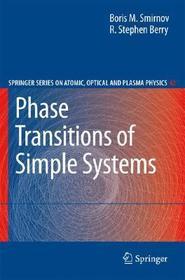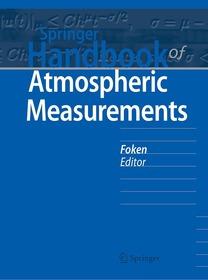
Phase Transitions of Simple Systems
Sorozatcím: Springer Series on Atomic, Optical, and Plasma Physics; 42;
-
12% KEDVEZMÉNY?
- A kedvezmény csak az 'Értesítés a kedvenc témákról' hírlevelünk címzettjeinek rendeléseire érvényes.
- Kiadói listaár EUR 160.49
-
66 563 Ft (63 393 Ft + 5% áfa)
Az ár azért becsült, mert a rendelés pillanatában nem lehet pontosan tudni, hogy a beérkezéskor milyen lesz a forint árfolyama az adott termék eredeti devizájához képest. Ha a forint romlana, kissé többet, ha javulna, kissé kevesebbet kell majd fizetnie.
- Kedvezmény(ek) 12% (cc. 7 988 Ft off)
- Kedvezményes ár 58 575 Ft (55 786 Ft + 5% áfa)
Iratkozzon fel most és részesüljön kedvezőbb árainkból!
Feliratkozom
66 563 Ft

Beszerezhetőség
Becsült beszerzési idő: A Prosperónál jelenleg nincsen raktáron, de a kiadónál igen. Beszerzés kb. 3-5 hét..
A Prosperónál jelenleg nincsen raktáron.
Why don't you give exact delivery time?
A beszerzés időigényét az eddigi tapasztalatokra alapozva adjuk meg. Azért becsült, mert a terméket külföldről hozzuk be, így a kiadó kiszolgálásának pillanatnyi gyorsaságától is függ. A megadottnál gyorsabb és lassabb szállítás is elképzelhető, de mindent megteszünk, hogy Ön a lehető leghamarabb jusson hozzá a termékhez.
A termék adatai:
- Kiadás sorszáma 2008
- Kiadó Springer Berlin Heidelberg
- Megjelenés dátuma 2007. október 2.
- Kötetek száma 1 pieces, Book
- ISBN 9783540715139
- Kötéstípus Keménykötés
- Terjedelem247 oldal
- Méret 235x155 mm
- Súly 559 g
- Nyelv angol
- Illusztrációk X, 247 p. 81 illus. Illustrations, black & white 0
Kategóriák
Hosszú leírás:
Thermodynamic concepts of aggregate states and their phase transitions - veloped during the 19th Century and are now the basis of our contem- rary understanding of these phenomena. Thermodynamics gives an universal, macroscopic description of the equilibrium properties of phase transitions - dependent of the detailed nature of the substances. However understanding the nature of phase transitions at the microscopic level requires a di?erent approach, one that takes into account the speci?cs of the interparticle int- actions. In this book, we lay the groundwork that connects the microscopic phenomena underlying phase changes with the macroscopic picture, but in a somewhat restricted way. We deal only with systems in which electronic excitations are not important, only with atomic systems, and only with - mogeneous systems. We also restrict our analysis to systems in which only pairwise interactions need be included, and, in many parts of the treatment, to systems in which one need consider only the interactions between nearest neighbor atoms. In establishing these restrictions, we can be guided by the solid and liquid states of inert gases and the phase transitions between them, althoughthesubsequentanalysisisrelevantandapplicableforaseriesofother physical systems. To study the behavior of a system of many interacting identical par- cles, we work extensively with its potential energy surface (PES), a surface in a many-dimensional space whose independent variables are the monomer coordinates or some transformation thereof. A central property of any m- tidimensional PES is its large number of local minima.
This monograph develops a unified microscopic basis for phases and phase changes of bulk matter and small systems, in terms of classical physics. It describes the thermodynamics of ensembles of particles and explains phase transition in gaseous and liquid systems. The origins of such phase changes are derived from simple but physically relevant models of how transitions occur between rigid and fluid states, of how phase equilibria arise, and how they differ for small and large systems.
TöbbTartalomjegyzék:
Thermodynamics of Ensembles of Classical Particles.- Excitations in Simple Atomic Ensembles.- Structures of Ensembles of Interacting Particles.- Thermodynamics of Dense Gases and Liquids.- Clusters with Short-Range Interaction.- Ensembles of Classical Particles with Repulsion.- Configurational Excitations and Aggregate States of Ensembles of Classical Particles.- Configurational Excitation and Voids in Ensembles of Bound Classical Atoms.- Configurational Cluster Excitation with Pairwise Interactions.- Phase Transitions in Macroscopic Systems of Atoms.- Melting of Clusters and Bulk Atomic Ensembles.- Dynamics of Configurational Excitations in Ensembles of Classical Particles.- Coexistence of Cluster Phases.- Glassy States of an Ensemble of Bound Atoms.- Transport of Voids in Nucleation Processes.- Conclusion and Summary.
Több





